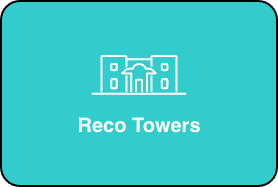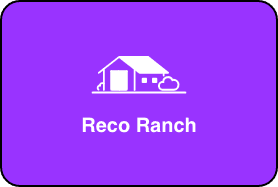Your Guide to Addiction Recovery Options in Florida

Navigating the Journey to Recovery in Florida
Understanding Substance Use Disorders
Substance use disorders (SUDs) are complex conditions characterized by the uncontrollable use of substances despite the detrimental effects on one’s health and daily life. These disorders can stem from various factors, including genetics, environment, and personal history, affecting the brain’s wiring and leading to intense cravings and compulsive substance use. Recognizing the signs of withdrawal is a critical first step toward understanding the severity of addiction and the need for professional intervention. Effective substance abuse recovery combines clinical treatment and supportive living environments to encourage a journey toward lasting sobriety.
The Importance of Choosing the Right Treatment Program
Selecting an appropriate treatment program is paramount to a successful recovery journey. Every individual’s battle with addiction is unique, requiring a personalized approach to treatment that addresses not only substance use but also co-occurring mental health disorders. Comprehensive programs like RECO’s addiction treatment approach offer various services, including detoxification, residential treatment, outpatient recovery services, and sober living homes. These programs are designed to provide continuous support throughout the different stages of recovery, equipping individuals with the tools they need to maintain long-term sobriety.
How Florida’s Recovery Community Supports Your Sobriety
Florida’s vibrant recovery community is crucial in supporting individuals on their path to sobriety. From the sunny beaches of Delray Beach to the serene settings of its numerous sober living facilities, Florida offers an ideal backdrop for healing and transformation. The state is well known for its comprehensive recovery services, including therapy, support groups, and sober living homes, which foster a sense of belonging and encourage peer support. Engaging with this community through activities, meetings, and group events can significantly enhance the recovery experience, providing motivation and encouragement from those who understand the journey firsthand.
The Role of Sober Living in Addiction Recovery
What is Sober Living?
Sober living refers to a type of transitional housing that is designed to support individuals in their recovery journey from substance use disorders. It bridges the gap between inpatient treatment centers and fully independent living. Sober living homes, often operated by recovery organizations or private entities, provide a structured, substance-free environment where residents can focus on their sobriety with the support of their peers and recovery specialists. Unlike traditional halfway houses, the RECO Institute for sober living emphasizes a community-based approach, offering not just a place to stay but a supportive network that encourages personal growth and long-term sobriety. These residences typically enforce rules that promote healthy living, such as curfews, regular drug testing, participation in household chores, and engagement in recovery or employment activities.
Benefits of Sober Living Homes
Sober living homes offer numerous benefits for individuals looking to strengthen their recovery from alcohol and drug addiction. First and foremost, they provide a stable and supportive environment free from the temptations and triggers often found in an individual’s usual living situation. Residents benefit from peer support, sharing experiences and strategies for maintaining sobriety with people who understand the challenges of recovery firsthand. Furthermore, these homes often incorporate or facilitate access to outpatient programs, therapy, and 12-step meetings, enabling individuals to continue their therapeutic work while transitioning to a more autonomous lifestyle. The structure and routine found in sober living can significantly help individuals in early recovery develop the discipline and coping mechanisms necessary to navigate life without reliance on substances.
Why Choose Sober Living in Florida?
Sober living in Florida offers unique advantages due to the state’s extensive recovery community and favorable climate. Florida is known for its comprehensive network of supportive environments for recovery in Florida, with organizations like RECO Institute providing leading-edge recovery services. The state’s warm weather and inviting landscapes foster outdoor activities and holistic recovery practices that can enhance physical and mental well-being. Florida’s recovery community is robust and diverse, offering a wealth of resources, meetings, and events to support individuals in their sobriety. Living in a sober residence in Florida allows residents to tap into a broad spectrum of support networks and recovery activities, making it an attractive option for those seeking a fresh start in a recovery-oriented environment.
Exploring Sober Living Options with RECO Institute
Transitional Sober Housing in Delray Beach
For many recovering from substance use disorders, transitioning back into the rhythms of everyday life poses significant challenges. Recognizing this, the RECO Institute offers transitional sober housing in Delray Beach, Florida, which serves as a bridge between intensive care and a return to independence. These sober living homes provide individuals with a supportive, structured environment where they can continue to heal and grow. Each residence is meticulously maintained to ensure comfort and safety, promoting a sense of community and belonging.
In Delray Beach, known for its serene landscapes and supportive recovery community, residents of RECO’s sober living homes benefit from both the tranquil environment and the proximity to various recovery resources, including outpatient programs and peer support groups. This charming coastal town not only offers a picturesque setting for recovery but also hosts a variety of sober-friendly activities and events, enabling residents to enjoy recreation and leisure in a substance-free context.
Our Unique Addiction Treatment Approach
RECO Institute, alongside its counterpart RECO Intensive, adopts a unique approach to addiction treatment that marries traditional methods with innovative therapies. This comprehensive strategy is evident in Delray Beach’s intensive outpatient recovery services, which aim to equip individuals with the tools they need for long-term sobriety. The program includes individual and group therapy, educational workshops, and monitored sober living, all tailored to support each participant’s unique journey through recovery.
One of the cornerstones of RECO’s approach is its focus on treating the whole person. Beyond addressing the physical aspects of addiction, the program delves into the psychological, emotional, and social factors that contribute to substance use disorders. By fostering personal growth and resilience, RECO prepares individuals not only to face the challenges of recovery but to thrive in their new sober lives.
Supportive Environment and Peer Support at RECO Institute
The role of a supportive environment and peer support cannot be overstated in the journey to recovery. At RECO Institute, fostering a tight-knit community where individuals can share experiences, offer encouragement, and hold each other accountable is a priority. Through substance abuse recovery through peer support, residents learn to navigate sobriety alongside others who understand the complexities of addiction firsthand.
Peer-led group meetings, recreational activities, and communal living situations encourage the development of healthy relationships and social skills, which are often compromised by substance use. These interactions not only enhance the recovery experience but also build a network of support that can extend well beyond the confines of the program. Moreover, the experienced staff and house managers at RECO are dedicated to creating a secure, respectful environment where all residents can focus on their recovery goals.
At RECO Institute, the blend of professional guidance with peer-led support arms individuals with a robust foundation for their recovery journey. In the scenic setting of Delray Beach, transitional sober housing becomes more than just a place to live, it’s an opportunity to redefine one’s life in the context of a supportive, sober community.


The Components of Successful Sober Living Programs
Navigating through the myriad options for addiction recovery in Florida, it’s crucial to understand the foundational elements that constitute successful sober living programs. Such programs not only support individuals in their journey toward sobriety but also in crafting a sustainable lifestyle free from substance dependence. The integration of a stable environment, structured group meetings, and comprehensive access to outpatient and 12-step meetings are critical components.
Stable Environment for Recovery
The cornerstone of an effective sober living program is the provision of a stable, secure, and drug-free environment. This setting acts as a sanctuary from the potential triggers and stresses of the outside world, enabling residents to focus solely on their recovery journey. A stable residence, such as those offered by RECO’s unique sober living experiences, is integral in encouraging habits that support sobriety and personal development. It’s this consistency and structure that lay the groundwork for the challenging yet rewarding path of long-term recovery.
Facilitated by experienced staff, these environments help instill a routine that includes self-care, responsibility, and productivity, factors often compromised during periods of active addiction. Providing spaces that are conducive to both introspection and communal support, RECO Institute’s sober living homes emphasize the importance of a comfortable living condition that aids in the gradual acclimation to a sober lifestyle.
Group Meetings and House Rules
The efficacy of sober living programs is significantly enhanced through structured group meetings and the enforcement of house rules. These components foster a sense of accountability and community among residents. Regularly scheduled group meetings, including therapy sessions and American Alcoholics Support Group meetings, offer a platform for individuals to share their experiences, challenges, and victories in a supportive environment.
House rules, on the other hand, maintain the integrity of the sober living environment. By setting clear expectations regarding sobriety, participation in household duties, and respect for others, these rules ensure that all residents are committed to their recovery journey and the well-being of their peers. This disciplined approach helps residents develop self-regulation skills and rebuild their lives on the foundation of mutual respect and understanding.
Access to Outpatient Programs and 12-step Meetings
A key aspect of successful sober living programs is seamless access to outpatient programs and 12-step meetings. These resources provide continuous support and guidance, allowing individuals to deepen their understanding of addiction and develop coping strategies for maintaining sobriety. Access to outpatient services, including substance abuse therapy services, ensures that residents receive personalized care tailored to their specific needs and recovery goals.
Moreover, participation in 12-step meetings, such as the Narcotic Dependency Anonymous sessions (Narcotic Dependency Anonymous sessions, enables residents to connect with a larger community of individuals who are also on the path to recovery. This not only enriches the sober living experience but also reinforces the principles of accountability, honesty, and communal support central to long-term sobriety. Together, these components create a comprehensive recovery ecosystem that supports residents in navigating the complexities of addiction and laying the foundation for a fulfilling sober life.
RECO Institute’s Approach to Long-term Recovery
Building a Recovery Journey Framework
At RECO Institute, the foundation of addiction recovery encompasses more than immediate sobriety, it involves building a sustainable framework for long-term recovery. This structured approach begins with an assessment of the individual’s unique needs and history with substance use, laying the groundwork for a personalized recovery plan. Core elements of this framework include transitional sober housing in Delray Beach, where individuals can gain stability, outpatient programs offering flexibility and ongoing support, and integration into the recovery community to foster connections and resilience. The emphasis is on gradually rebuilding the individual’s life, focusing on health, wellness, personal development, and social integration.
Alumni Program and Continuing Support
A distinctive aspect of RECO Institute’s commitment to long-term recovery is its robust Alumni Program. This facet of the RECO experience keeps former residents connected to the community and resources that support their initial steps toward sobriety. The Alumni Program offers ongoing opportunities for engagement, including community events, volunteer opportunities, and outreach initiatives that empower individuals to give back and stay grounded in their recovery journey. This continuous support system is crucial for navigating challenges and celebrating milestones, reinforcing the values and strategies that promote lasting recovery.
Focus on Mental Health and Substance Use Disorder Treatment
Understanding the intricate link between mental health and substance use disorders is key to the comprehensive treatment approach at RECO Institute. Dual diagnosis programs address not only the physical aspects of addiction but also the psychological underpinnings, offering therapy and support for conditions such as depression, anxiety, and trauma which often coexist with substance use disorders. This holistic treatment model ensures that individuals receive care that addresses all facets of their health, using evidence-based therapies and support systems to foster healing and empower individuals in their recovery. Tailoring treatment to include mental health services is fundamental to addressing the root causes of addiction and paving the way for a healthy, sober life.
Understanding the Florida Sober Living Legislation
Regulations Governing Sober Living Homes
In Florida, sober living homes operate under specific regulations aimed at ensuring the safety and efficacy of the sober living environment. These regulations are designed to protect residents from potential exploitation and to ensure that sober living homes offer a supportive and effective recovery environment. Florida’s approach involves a combination of state regulations and local ordinances that govern the operation of sober living residences. This includes certification processes, operational standards, and regular inspections to ensure compliance with health and safety standards.
Moreover, Florida legislation often requires sober living homes to have trained staff and to adhere to policies that promote the residents’ recovery and well-being. The Florida Association of Recovery Residences (FARR) is an important entity in this regulatory environment, offering accreditation to sober living homes that meet specific standards of care. Through this regulatory framework, Florida aims to create a safe and supportive environment for individuals in recovery, emphasizing the importance of structured, substance-free living spaces.
Compliance and Safety in Sober Living Residences
Compliance with Florida’s sober living legislation is crucial for the operation of sober living residences. It not only ensures the safety and well-being of the residents but also provides a framework for the consistent delivery of quality recovery services. Sober living homes must adhere to strict safety codes, including fire safety, building codes, and health regulations, to ensure a safe living environment for residents. These standards are enforced through regular inspections and audits by regulatory bodies.
Safety in sober living residences extends beyond physical health and safety to include psychological safety and support. This involves implementing policies that protect residents from discrimination, abuse, and exploitation. Sober living homes are encouraged to provide access to clinical support and counseling services, either on-site or through partnerships with local treatment providers. The focus on compliance and safety underscores the commitment of Florida’s sober living residents to creating a supportive and effective recovery environment, where residents can focus on their journey to long-term sobriety.
The Impact of Legislation on Recovery Housing Quality
The legislation governing sober living homes in Florida has a significant impact on the quality of recovery housing available to individuals seeking sobriety. By establishing clear standards and requiring adherence to these standards, the legislation helps to weed out substandard facilities that may not have the best interests of their residents at heart. For residents and their families, this means greater assurance that the sober living home they choose will provide a safe, supportive, and effective recovery environment.
The legislation also encourages the professionalization of the recovery housing sector, with sober living homes striving to meet and exceed regulatory standards to gain accreditation and recognition. This has led to an improvement in the overall quality of recovery housing in Florida, with many sober living homes offering comprehensive support services, including RECO Academy’s success in addiction recovery, which has been instrumental in many individuals’ recovery journeys.
Moreover, the impact of legislation extends to the broader community, fostering a more supportive and understanding approach to addiction recovery. By ensuring that sober living homes operate transparently and maintain high standards of care, the legislation helps to legitimize and normalize recovery housing as a crucial component of addiction treatment and recovery in Florida. This, in turn, helps to reduce stigma and support individuals in their journey to a healthier, sober life.
The Importance of Community in Sober Living
Building a Support Network
In the realm of addiction recovery, the strength of one’s support network often determines the resilience and longevity of their sobriety. Sober living in Florida, especially in nurturing communities like Delray Beach, provides fertile ground for laying down the roots of this vital support system. Constructing a network of peers, counselors, and mentors who understand the multifaceted journey of recovery is pivotal. This network acts as a safety net, offering encouragement during moments of doubt and celebration during milestones of sobriety. In the context of the RECO Institute’s dedication to creating a supportive environment, residents find themselves surrounded by individuals who are not only on similar paths but are also invested in each other’s success. This collective commitment to recovery cultivates a strong sense of community, where every member plays a crucial role in the support system.
Peer Support for Addiction Recovery
Peer support, a cornerstone of addiction recovery in Florida’s sober living homes, facilitates a unique form of healing and understanding. Engaging in shared experiences and struggles allows individuals to forge connections that transcend ordinary relationships. At the heart of sober living programs in Florida is the principle that recovery thrives in an environment of mutual support and empathy. Through group homes and transitional housing programs, residents benefit from an ecosystem of peer-led activities, discussions, and therapy sessions. This contributes to a culture of openness, where the challenges of maintaining sobriety are met with collective wisdom and support. Additionally, the structured nature of RECO Institute’s group meetings and house rules reinforces the values of accountability and communal living, further enhancing the efficacy of peer support in the journey toward long-term recovery.
Engaging with Florida’s Recovery Community
To fully tap into the benefits of sober living, engaging with Florida’s broader recovery community is essential. This wider network includes support groups, 12-step meetings, and sober-friendly events, extending the support system beyond the confines of transitional housing. Florida, particularly areas like Delray Beach, is known for its active and welcoming recovery community. Participating in community activities not only diversifies an individual’s support network but also reinforces their commitment to a sober lifestyle. The connection to a community larger than oneself fosters a sense of belonging and purpose, crucial elements for sustained recovery. Additionally, the availability of diverse treatment options and sober living programs in Florida allows individuals to tailor their recovery journey to their specific needs, promoting a more personalized and effective path to sobriety.
In the intricate tapestry of recovery, the community holds a place of paramount importance. From the intimate support circles fostered within sober living residences to the wide-reaching embrace of Florida’s recovery community, these networks of support are instrumental in navigating the challenges and celebrating the victories of a sober life. Engaging with peers, tapping into the wealth of resources available, and remaining active in the community are all steps that individuals can take to ensure a robust and resilient recovery journey in Florida.
From Treatment to Transformed Life: Recovery Stories
Success Stories of Long-term Recovery
Transitioning from the throes of addiction to a fulfilling, sober life is no small feat. It’s a journey paved with challenges, learning, and immense personal growth. The stories of those who have navigated this path successfully serve as beacons of hope and inspiration for many still in the fight. Florida, with its comprehensive addiction recovery options, has been the backdrop for numerous such success stories. Individuals who have embraced the structured environment and supportive community found in programs like those at RECO Institute often share tales of transformation that are nothing short of miraculous. These narratives not only highlight the possibility of long-term recovery but also underscore the importance of personalized treatment plans that address the underlying causes of addiction.
The Role of Sober Living Homes in Sustainable Sobriety
Central to many recovery stories is the pivotal role played by sober living homes. These residences provide more than just a place to stay, they offer a supportive and structured environment where individuals can practice sober living skills in real-world settings. Sober living homes in Florida, known for their serene surroundings and a strong sense of community, have been instrumental in helping many individuals lay the foundation for sustainable sobriety. By fostering a culture of accountability, offering peer support, and integrating residents into the local recovery community, these homes help bridge the gap between intensive treatment and full independence. The transition provides residents with the tools and confidence needed to navigate life’s challenges without the crutch of substances.
How RECO Institute Facilitates Transformation
The RECO Institute stands out in the Florida recovery landscape for its holistic approach to addiction treatment and sober living. By combining high-quality residential treatment with comprehensive sober living programs, RECO facilitates a seamless transition for individuals seeking to rebuild their lives. The Institute’s innovative approach includes not only traditional therapies but also engagement with the broader recovery community and activities designed to promote physical, mental, and emotional well-being. This multifaceted strategy ensures that residents not only achieve sobriety but also learn the skills necessary for a fulfilling, sober life.
Furthermore, the support doesn’t end upon graduation from the program. RECO’s robust alumni program keeps former residents connected to the community and resources that have been central to their recovery journey. Alumni activities and continued access to support services reinforce the lessons learned during treatment and sober living, helping individuals navigate the complexities of life post-recovery. This ongoing support is crucial for maintaining long-term sobriety and is a testament to RECO’s commitment to facilitating true transformation in the lives of those it serves.
The journey from addiction to recovery is deeply personal, yet universally challenging. The transformation that occurs through structured treatment and the supportive environment of sober living homes like those offered by RECO Institute is profound. Through dedication, support, and the right resources, a new lease on life is not just possible-it’s within reach. As more individuals share their recovery stories, they light the way for others in their darkest times, proving that with the right help, a sober life full of possibility is attainable.


Choosing Your Path in Florida’s Recovery Landscape
Evaluating Treatment Options and Sober Living Programs
Navigating the myriad of recovery options in Florida can be overwhelming, with a wide range of treatment programs and sober living homes available. When evaluating these options, it’s essential to consider factors such as the type of substance use disorder, any co-occurring mental health conditions, and the individual’s personal recovery goals. Sober living in Florida, with its supportive environments and comprehensive facilities, offers a solid foundation for sustained recovery. These programs often include phases that transition from intensive treatment, such as residential or outpatient programs, to more independent sober living housing. Programs like those at RECO Institute in Delray Beach highlight the importance of a continuum of care that bridges the gap between treatment and real-world living, ensuring a smoother transition for individuals in recovery.
The Benefits of Outpatient Addiction Recovery in Florida
Outpatient addiction recovery programs in Florida provide a flexible treatment model that allows individuals to maintain their daily responsibilities while receiving essential therapeutic support. This model is particularly beneficial for those who have completed a more intensive treatment program and are ready to transition to a less structured environment. Outpatient programs in Florida, including those offered by RECO Institute, combine therapy, support groups, and educational workshops, promoting a holistic approach to recovery. Participants not only benefit from ongoing clinical care but also have the opportunity to apply recovery skills in real-life contexts. The warm climate and vibrant recovery community in areas like Delray Beach further enhance the outpatient recovery experience, offering an ideal backdrop for healing and growth.
Finding the Right Sober Living Near Delray Beach
Choosing the right sober living residence is a critical step in the recovery journey, providing an environment that supports sobriety, personal development, and community engagement. In Delray Beach, known for its picturesque landscapes and robust recovery community, finding the right sober living home can significantly impact one’s long-term sobriety. Key factors to consider include the location’s proximity to support services, the structure of the program, and the community culture within the sober living home. RECO Institute’s transitional sober housing in Delray Beach exemplifies the qualities of an ideal sober living environment, offering stability, a supportive peer network, and access to comprehensive recovery services. By prioritizing a match between the individual’s needs and the sober living program’s offerings, individuals can lay a strong foundation for a sober life in Florida.
For those navigating legal challenges related to substance use, resources like Legal Support for addiction in Florida can provide crucial guidance and assistance, ensuring that individuals can focus on their recovery journey without the added stress of unresolved legal issues.
Embracing a Sober Life: Next Steps in Your Recovery Journey
The journey through addiction recovery often involves navigating various stages of treatment and support. As individuals progress through these stages, moving from structured treatment environments into a more autonomous sober lifestyle becomes an essential step. This final phase in recovery emphasizes the importance of preparation, ongoing support, and strategies to maintain sobriety in everyday life.
Preparing for Transition from Sober Living
Building Independence and Confidence
Transitioning from a sober living environment to fully independent living is a significant milestone in the recovery journey. This process begins with fostering independence within the supportive framework of sober living programs. Residents are encouraged to take on increasing responsibilities, from managing their schedules to engaging in employment or educational opportunities. These experiences build the confidence needed to navigate life outside of the sober living residence.
Developing a Personalized Sobriety Plan
A successful transition requires a personalized plan that addresses the unique challenges and goals of each individual. This plan should outline strategies for managing triggers, maintaining a healthy lifestyle, and integrating into a supportive community. It might also include continuing therapy sessions or participating in outpatient services to reinforce coping skills learned during earlier phases of recovery.
Continuing Care and Support Groups
The Role of Alumni Programs
Continuing care, often facilitated by alumni programs, plays a crucial role in supporting individuals as they embrace sober living. These programs provide a bridge between the structured support of sober living homes and the independence of life post-recovery. Through activities, meetings, and networking opportunities alumni programs foster a sense of belonging and offer a safety net during challenging times.
Engaging with Support Groups
Engagement with support groups remains a cornerstone of long-term sobriety. Groups such as Alcoholics Anonymous or Narcotics Anonymous offer a forum for sharing experiences and receiving guidance from peers who have faced similar challenges. These meetings reinforce the principles of recovery and provide a consistent source of support and accountability.
Maintaining Sobriety in the Real World
Embracing a Lifestyle of Recovery
Maintaining sobriety in the real world extends beyond abstaining from substance use, it involves embracing a lifestyle centered around recovery. This includes making conscious choices about relationships, activities, and environments to support ongoing sobriety. It also involves practicing mindfulness and self-care to manage stress and maintain emotional balance.
Navigating Challenges with Resilience
Challenges are an inevitable part of life, but with the tools and strategies developed through the recovery process, individuals can navigate these obstacles with resilience. Building a robust support network, continuing to engage with recovery resources, and staying committed to personal growth are all critical components of successfully maintaining sobriety.
Celebrating Milestones
Recognizing and celebrating milestones in the recovery journey, whether they are months or years of sobriety, reinforces the value of the hard work involved in maintaining a sober life. Celebrations can be personal reflections or shared with supportive friends and family, marking the accomplishments and progress made on the path to recovery.
Embracing a sober life involves a dynamic process of growth, support, and personal development. Although the transition from sober living to independent living presents challenges, the skills and resilience gained through the recovery journey provide a strong foundation for a fulfilling, sober lifestyle. With continued care, support groups, and a commitment to self-awareness, individuals can navigate the complexities of the real world while maintaining their sobriety and embracing the opportunities that a life of recovery offers.
Frequently Asked Questions
Question: What sets RECO Institute apart from other sober living in Florida?
Answer: RECO Institute distinguishes itself through its seamless integration of transitional sober housing with a comprehensive addiction treatment program, offering a holistic approach to recovery. Located in the supportive recovery community of Delray Beach, RECO provides a unique environment that fosters healing and growth. By combining structured sober living residences with innovative addiction treatment programs in Florida, residents benefit from a continuous care model that addresses every stage of the recovery journey. The focus on building a supportive environment, including peer support and professional guidance, ensures that individuals have the resources and community needed for long-term recovery.
Question: How does ‘Your Guide to Addiction Recovery Options in Florida’ help those struggling with alcohol addiction recovery in Florida?
Answer: ‘Your Guide to Addiction Recovery Options in Florida’ serves as an invaluable resource by highlighting the effective, personalized treatment and sober living programs available at RECO Institute in Delray Beach. This guide outlines how tailored treatment plans, including outpatient addiction recovery Florida programs and 12-step meetings, work in conjunction to support the multifaceted nature of alcohol addiction recovery. By emphasizing the importance of a stable recovery environment found in sober living homes and the robust Florida recovery community, the guide reassures individuals and families that comprehensive support is within reach at RECO Institute, ensuring a compassionate pathway towards a sober life.
Question: Can you explain the role of the alumni program in supporting long-term recovery options in Florida at the RECO Institute?
Answer: The alumni program at RECO Institute plays a crucial role in fostering long-term recovery by keeping graduates connected to the supportive community and resources that have been central to their journey. This program offers ongoing engagement opportunities, from community events to volunteer initiatives, empowering individuals to remain active in the recovery community. The alumni program reinforces the lessons learned during their time in transitional housing and treatment, providing a safety net for those facing new challenges. By encouraging continued growth and connection, the alumni program exemplifies RECO’s commitment to supporting long-term recovery options in Florida, acknowledging that recovery is an ongoing process that benefits from lasting community ties.
Question: How do the RECO Institute’s sober living programs in Florida incorporate peer support for addiction in Florida?
Answer: At RECO Institute, peer support is an integral component of our sober living programs in Florida. Engaging residents in a community where they can share their experiences and challenges, RECO harnesses the power of mutual understanding and accountability. This is achieved through structured group meetings, shared communal living experiences, and participation in Florida sober life support activities, including 12-step programs in Florida. The emphasis on peer interaction allows individuals to gain insights and strategies from others who are on similar paths, reinforcing the communal journey toward sobriety. This focus on peer support exemplifies our belief that recovery thrives in an atmosphere of collective empathy and collaboration, making our programs a foundational step in building a resilient sober network.
Question: What are the key considerations when finding sober living near Delray Beach through the RECO Institute?
Answer: When seeking sober living near Delray Beach, key considerations include evaluating the program’s approach to integrating treatment and housing, the level of support and structure provided, and how well the environment fosters a sense of community and personal growth. At RECO Institute, our sober living residences are designed with these considerations in mind, offering a serene backdrop coupled with robust recovery services. Potential residents should look for a program that offers access to outpatient programs, group meetings, and a strong recovery community to ensure a holistic recovery experience. Emphasizing personalized care, RECO’s transitional housing in Delray Beach provides the stability and resources needed for individuals to thrive in their recovery journey, making these factors essential when choosing the right sober living option.















